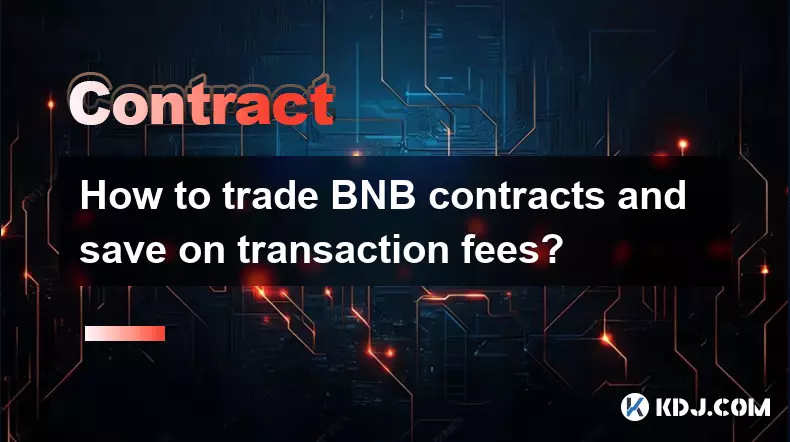-
 bitcoin
bitcoin $87959.907984 USD
1.34% -
 ethereum
ethereum $2920.497338 USD
3.04% -
 tether
tether $0.999775 USD
0.00% -
 xrp
xrp $2.237324 USD
8.12% -
 bnb
bnb $860.243768 USD
0.90% -
 solana
solana $138.089498 USD
5.43% -
 usd-coin
usd-coin $0.999807 USD
0.01% -
 tron
tron $0.272801 USD
-1.53% -
 dogecoin
dogecoin $0.150904 USD
2.96% -
 cardano
cardano $0.421635 USD
1.97% -
 hyperliquid
hyperliquid $32.152445 USD
2.23% -
 bitcoin-cash
bitcoin-cash $533.301069 USD
-1.94% -
 chainlink
chainlink $12.953417 USD
2.68% -
 unus-sed-leo
unus-sed-leo $9.535951 USD
0.73% -
 zcash
zcash $521.483386 USD
-2.87%
What are the main benefits of using smart contracts?
Smart contracts on blockchain ensure secure, tamper-proof, and automated execution of agreements without intermediaries, reducing costs and increasing transparency.
Aug 13, 2025 at 11:36 am

Enhanced Security and Immutability
Smart contracts operate on blockchain networks, which are inherently secure due to cryptographic protocols. Once a smart contract is deployed, its code and transaction history become immutable, meaning they cannot be altered or tampered with. This ensures that the terms encoded in the contract remain unchanged throughout its lifecycle. The decentralized nature of blockchain prevents single points of failure, making it extremely difficult for malicious actors to compromise the system. Every execution of a smart contract is recorded on the blockchain, providing a transparent and verifiable audit trail. This level of transparency and tamper resistance significantly reduces the risk of fraud and unauthorized modifications.
Elimination of Intermediaries
One of the most transformative benefits of smart contracts is their ability to function without third-party intermediaries such as banks, lawyers, or notaries. By automating the enforcement and execution of agreements, smart contracts reduce dependency on centralized institutions. This leads to reduced transaction costs and faster processing times. For example, in a real estate transaction, a smart contract can automatically transfer ownership once the buyer’s payment is verified, without requiring escrow services or legal paperwork. This disintermediation not only cuts fees but also minimizes delays caused by manual processing and human error.
Automated Execution and Trustless Environment
Smart contracts execute automatically when predefined conditions are met. This automation is governed by code, ensuring that actions occur precisely as programmed. For instance, if a borrower repays a loan on time, the smart contract can instantly release collateral without requiring manual intervention. This creates a trustless environment where parties do not need to rely on each other’s honesty or reputation. Trust is instead placed in the code and the underlying blockchain infrastructure. The deterministic nature of smart contracts ensures consistent outcomes, reducing disputes and increasing reliability in digital agreements.
Improved Efficiency and Speed
Traditional contract processes often involve lengthy approval cycles, document verification, and coordination between multiple parties. Smart contracts streamline these workflows by executing instantly upon condition fulfillment. This results in dramatically faster transaction times compared to conventional methods. In supply chain management, a smart contract can trigger payments to suppliers the moment a shipment is confirmed via IoT sensors. The integration of smart contracts with oracles—trusted data sources—enables real-time data validation, further accelerating execution. The reduction in manual oversight and paperwork leads to scalable and efficient operations across industries.
Global Accessibility and Standardization
Smart contracts are accessible to anyone with an internet connection and a compatible wallet, enabling borderless participation in digital agreements. This opens opportunities for individuals in underbanked regions to engage in financial services, decentralized applications (dApps), and tokenized asset markets. Furthermore, smart contracts can be standardized across platforms, allowing for interoperability between different blockchain ecosystems. Open-source libraries like OpenZeppelin provide pre-audited contract templates, promoting consistency and reducing development time. This standardization enhances reliability and encourages widespread adoption across sectors such as finance, insurance, and intellectual property.
Cost Reduction in Operations and Compliance
Organizations leveraging smart contracts experience significant savings in operational overhead. Since execution is automated, there is no need for clerical staff to monitor contract fulfillment or manage follow-ups. Compliance processes also benefit from transparency and traceability. Regulatory requirements can be encoded directly into the contract logic, ensuring that every transaction adheres to predefined rules. For example, a smart contract in a securities offering can automatically enforce know-your-customer (KYC) and anti-money laundering (AML) checks before allowing token transfers. This embedded compliance reduces legal risks and auditing complexity, lowering long-term administrative expenses.
Use Case: Decentralized Finance (DeFi)
In the DeFi ecosystem, smart contracts power lending platforms, decentralized exchanges (DEXs), and yield farming protocols. Users can lend assets and earn interest without relying on traditional banks. A lending smart contract automatically calculates interest, manages collateral, and liquidates positions if loan-to-value ratios fall below thresholds. For example, on platforms like Aave or Compound:
- Users deposit cryptocurrency into a liquidity pool.
- The smart contract issues interest-bearing tokens representing their share.
- Borrowers provide collateral and receive loans based on available liquidity.
- Repayments are tracked on-chain, and collateral is released upon full repayment.
This entire process operates autonomously, ensuring 24/7 availability and eliminating geographic or institutional barriers.
Frequently Asked Questions
Can smart contracts be changed after deployment?No, smart contracts are immutable once deployed on the blockchain. Any changes require deploying a new contract instance. Some platforms support upgradeable contracts through proxy patterns, but these still follow strict governance mechanisms to prevent unauthorized alterations.
What happens if there is a bug in a smart contract?Bugs in smart contract code can lead to loss of funds or unintended behavior. Since the code is immutable, fixing bugs requires deploying a new contract and migrating users. This is why rigorous auditing and testing by security firms like CertiK or ConsenSys Diligence are critical before deployment.
Are smart contracts legally binding?The legal status varies by jurisdiction. Some countries, like the United States and Switzerland, recognize blockchain-based agreements under certain conditions. However, enforcement often depends on how well the smart contract aligns with existing contract law. Including off-chain legal clauses linked to on-chain execution can strengthen enforceability.
How do I interact with a smart contract?To interact with a smart contract:
- Connect a cryptocurrency wallet like MetaMask to a blockchain network.
- Access a dApp interface that interfaces with the contract.
- Approve transactions through the wallet when initiating actions like transfers or approvals.
- Pay gas fees in the network’s native token (e.g., ETH on Ethereum) to execute operations.
Disclaimer:info@kdj.com
The information provided is not trading advice. kdj.com does not assume any responsibility for any investments made based on the information provided in this article. Cryptocurrencies are highly volatile and it is highly recommended that you invest with caution after thorough research!
If you believe that the content used on this website infringes your copyright, please contact us immediately (info@kdj.com) and we will delete it promptly.
- Bitcoin Under Pressure: Galaxy Analyst Eyes $58K Amidst ETF Outflows and Weakening Debasement Narrative
- 2026-02-03 19:00:02
- Crypto Market Stabilizes as Bitcoin Rebounds; Key Factors Driving the Recovery
- 2026-02-03 19:10:02
- ETH Rebound Ignites L3 Architecture Race: Liquid Chain Eyes the Fragmentation Fix
- 2026-02-03 19:10:02
- Down Under's Digital Shift: Australian Corporate Treasuries Eye Bitcoin Amidst Global Crypto Waves
- 2026-02-03 19:20:01
- Navigating Inflation: Real Assets and Evolving Investment Strategies in Today's Economy
- 2026-02-03 19:20:01
- BlockDAG's $452M Presale Nears End: The $0.0005 Upside Entry Opportunity for 2026
- 2026-02-03 15:40:02
Related knowledge

How to close a crypto contract position manually or automatically?
Feb 01,2026 at 11:19pm
Manual Position Closure Process1. Log into the trading platform where the contract is active and navigate to the 'Positions' or 'Open Orders' tab. 2. ...

How to understand the impact of Bitcoin ETFs on crypto contracts?
Feb 01,2026 at 04:19pm
Bitcoin ETFs and Market Liquidity1. Bitcoin ETFs introduce institutional capital directly into the spot market, increasing order book depth and reduci...

How to trade DeFi contracts during the current liquidity surge?
Feb 01,2026 at 07:00am
Understanding Liquidity Dynamics in DeFi Protocols1. Liquidity surges in DeFi are often triggered by coordinated capital inflows from yield farming in...

How to use social trading to copy crypto contract experts?
Feb 02,2026 at 07:40am
Understanding Social Trading Platforms1. Social trading platforms integrate real-time market data with user interaction features, enabling traders to ...

How to trade BNB contracts and save on transaction fees?
Feb 03,2026 at 12:39am
Understanding BNB Contract Trading Mechanics1. BNB contracts are derivative instruments traded on Binance Futures, allowing users to gain leveraged ex...

How to build a consistent crypto contract trading plan for 2026?
Feb 02,2026 at 10:59pm
Defining Contract Specifications1. Selecting the underlying asset requires evaluating liquidity depth, historical volatility, and exchange support acr...

How to close a crypto contract position manually or automatically?
Feb 01,2026 at 11:19pm
Manual Position Closure Process1. Log into the trading platform where the contract is active and navigate to the 'Positions' or 'Open Orders' tab. 2. ...

How to understand the impact of Bitcoin ETFs on crypto contracts?
Feb 01,2026 at 04:19pm
Bitcoin ETFs and Market Liquidity1. Bitcoin ETFs introduce institutional capital directly into the spot market, increasing order book depth and reduci...

How to trade DeFi contracts during the current liquidity surge?
Feb 01,2026 at 07:00am
Understanding Liquidity Dynamics in DeFi Protocols1. Liquidity surges in DeFi are often triggered by coordinated capital inflows from yield farming in...

How to use social trading to copy crypto contract experts?
Feb 02,2026 at 07:40am
Understanding Social Trading Platforms1. Social trading platforms integrate real-time market data with user interaction features, enabling traders to ...

How to trade BNB contracts and save on transaction fees?
Feb 03,2026 at 12:39am
Understanding BNB Contract Trading Mechanics1. BNB contracts are derivative instruments traded on Binance Futures, allowing users to gain leveraged ex...

How to build a consistent crypto contract trading plan for 2026?
Feb 02,2026 at 10:59pm
Defining Contract Specifications1. Selecting the underlying asset requires evaluating liquidity depth, historical volatility, and exchange support acr...
See all articles

























![Discontinuum by: ArchitechGD 100% (1 coin) (Mobile) Geometry Dash [2.2] Discontinuum by: ArchitechGD 100% (1 coin) (Mobile) Geometry Dash [2.2]](/uploads/2026/02/03/cryptocurrencies-news/videos/origin_69814d99e6b61_image_500_375.webp)
















































